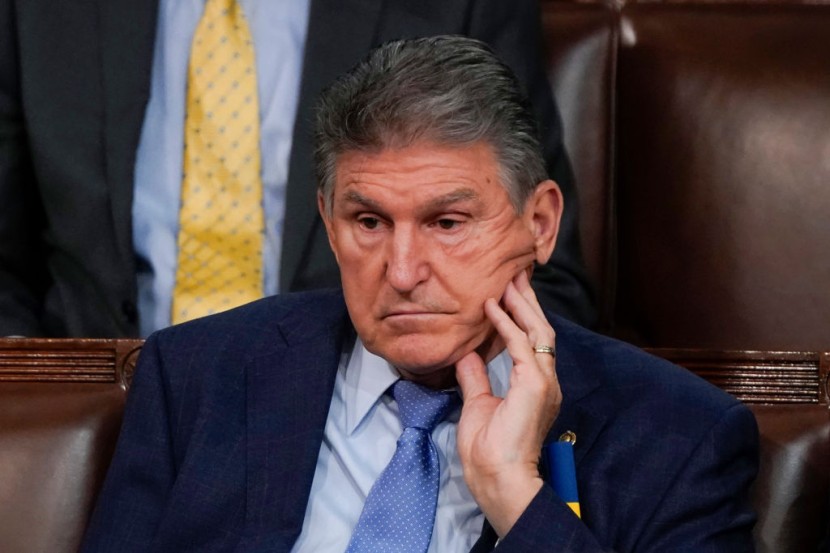
Since the majority of President Joe Biden's 'Build Back Better' agenda has stalled in Congress, Democratic legislators are pleading with him to act more aggressively to confront the issue of global warming.
Hopes for comprehensive climate legislation in Congress are once again dwindling since Sen. Joe Manchin (D-W.Va.) and all Senate Republicans oppose further expenditure intended to tackle climate change.
Biden Vows To Take "Strong" Action on Climate Change
The setback happens at a time when severe heat and drought are shattering records all around the world, most notably in Texas and even in the UK. Over the previous week, heat-related deaths have claimed the lives of more than 1,100 individuals in Spain and Portugal.
After Manchin informed Democratic leaders of his opposition to further spending last week, Biden promised to take "strong" executive action on climate change. Advocates are watching to see if he makes good on his promise, as per HuffPost.
Declaring a national emergency on climate change is one step the president may take. This would give him the power to reroute funding from Congress to promote renewable energy. The US-Mexico border was proclaimed to be under a state of emergency by former President Donald Trump, who then used legislative money to build border walls.
Additionally, the Biden administration might adopt greater laws of emissions like carbon dioxide and set stricter limitations on pollutants. Since the administration is currently focused on bringing down high gas prices ahead of the November election, environmental groups say Biden should go even further and stop federal leasing of fossil fuels as well as approvals of new pipelines and other oil and gas projects. However, such steps appear unlikely for the time being.
Only Sen. Martin Heinrich (D-N.M.) has publicly called for Manchin's chairmanship of the energy committee to be revoked, despite the fact that many Senate Democrats have criticized and blamed him for forgoing negotiations with Senate Majority Leader Chuck Schumer that might have resulted in a package on drug prices, taxes, and climate change. Most Democrats aren't trying to rile up Manchin; instead, they're willing to accept what they can get, Politico reported.
It became evident Monday evening that Democrats can only do so much before the November elections after spending more than a year speculating on a solution that may appease Manchin while still achieving the party's long-standing policy objectives. Democratic senators have given up chasing Manchin after straining the parameters of a 50-50 Senate to the absolute maximum.
Why Sen. Joe Manchin Is Too Influential on the Party's Domestic Agenda?
A knowledgeable source claims that Manchin skipped a leadership gathering on Monday night. He doesn't always show up for those discussions or caucus sessions. Even though his coworkers were psychologically moving on, Manchin kept the possibility of more discussions open. He stated that he would consider tax increases as well as a big environment and energy package if inflation drops next month.
Ireland's finance minister met secretly with Treasury Secretary Janet L. Yellen in June, months after grudgingly agreeing to a worldwide tax pact mediated by the United States, in order to get assurances that the Biden administration would uphold its half of the bargain.
Paschal Donohoe, the minister, received a reassurance from Yellen that the administration would be able to win enough support in Congress to ensure that the United States complied with the agreement, which was designed to crack down on businesses that evade taxes by shifting employees and profits abroad.
Manchin's change of mind, couched in terms used by Republican deal opponents, is a setback for Yellen, who spent months securing the support of more than 130 nations. It is also a setback for President Biden and Democratic senatorial leaders, who fought hard to increase tax rates on large multinational firms in a bid to set an example for the rest of the world and prevent them from transferring workers and money to reduce their tax obligations.
The deal would have brought about the broadest changes to international taxation in decades, including higher taxes on many major firms and altered taxation policies for technology companies. The two-pronged strategy calls on governments to implement a minimum tax of 15% so that businesses pay at least that much on their worldwide earnings wherever they choose to do business. Additionally, it would enable governments to impose taxes on the biggest and most prosperous corporations on the basis of where their products and services were sold, rather than where their headquarters were.
Per NY Times, if domestic agreements cannot be reached, both the Biden administration and global firms will be in a problem. Although many other nations are likely to move quickly to ratify the agreement, some may feel empowered to continue to hold out, perhaps splintering the coalition and allowing certain nations to continue to promote themselves as corporate tax havens.
Related Article : Bernie Sanders Condemns Joe Manchin for "Intentionally Sabotaging" Joe Biden's Agenda That Democrats Negotiate for Months
@YouTube
© 2025 HNGN, All rights reserved. Do not reproduce without permission.








